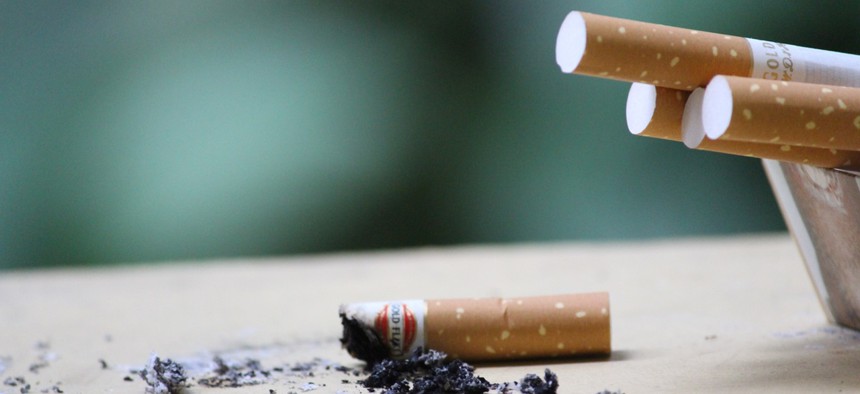
Basil MK/Pexels.com
There’s a Very Deep Reason Why You Can’t Kick That Bad Habit
"Willpower and self-control are not a good match for habit."
Chances are, you’re still doing whatever bad habit you tried to quit for last new year’s resolution. The months and years go by and, perhaps your job or relationships change, but your routines and behavior likely stay overwhelmingly the same. That’s because the vast majority of our actions aren’t conscious. And to change any lingering bad habits, you have to focus on understanding your subconscious behavior.
“Humans can do just about all of our behavior without consciousness,” says Val Curtis, a behavior change expert at London School of Hygiene and Tropical Medicine. “You could switch off our pre-frontal cortex and we’d still be able to behave in the same way. We’re able to do almost everything we do every day on autopilot.”
This makes sense from an evolutionary perspective. After all, says Curtis, “it would just be too difficult for our brains to make minute decisions about every single thing we do at every moment. It would take too much computing power.”
Instead, we learn to instinctively respond to the objects around us, which allows us to move through the world without having to make a conscious decision about every action we take. Much like driving on autopilot, without giving conscious attention to shifting gears or turning left, much of our daily routine—getting dressed, traveling to work, making coffee—is carried out automatically in response to environmental stimuli.
Wendy Wood, professor of psychology and business at University of Southern California, notes that while we’re aware of our conscious thought processes, it’s far more difficult to understand automatic behavior patterns. “Habits form when you repeat a response in a given context and it is rewarded (e.g., enter kitchen first thing in the morning, make coffee),” she explains in an email. The result is that we learn to link our context with a specific response—e.g. we know that when we’re in the kitchen early in the morning, we should be making coffee.
“In a way, habits are a short-cut,” says Wood. “You don’t have to think about what to do, the response you have done in the past just pops into mind. And this can work well for coffee making—you don’t have to wonder whether you want coffee today, you just make it.”
As New Scientist notes, Wood’s research shows that almost half of our behavior in any particular situation is habitual. The problem only comes when our habitual behavior becomes harmful: when we smoke or eat unhealthy food without consciously choosing to do so.
To change these kinds of behaviors, it’s important to pay attention to the environment we tend to do them in. “Successful behavior change actually involves changing the contexts in which we live,” says Wood. So smokers should avoid the places where they smoke, those hoping to lose weight should re-arrange their food cupboards so as not to instinctively reach for unhealthy food, and anyone aiming to be more productive needs to calm their environment—both by physically tidying, and removing internet distractions.
“You have to recognize that the environment around you will disturb you,” says Curtis.”You have to create both a real environment around you that’s not disturbing and a virtual environment that’s not distracting.”
Focusing only on conscious behavior won’t go very far in changing your lifestyle. “Willpower and self-control are not a good match for habit,” says Wood. “Habits will persist long after your willpower is depleted and you no longer can exert self-control.”
But if you’ve tried changing your settings and still can’t change that habit, there’s always one last-ditch option for those who are truly desperate. Wood points out that people tend to be better at changing their behavior after they’ve moved or had another big life change. “The old cues are removed and people have a window of opportunity to do something new,” she says. So if you’re really, really set on ditching that bad habit this year, then relocate, change your job, and get rid of all habitual behavior in your life. It’s drastic, but it just might work.






